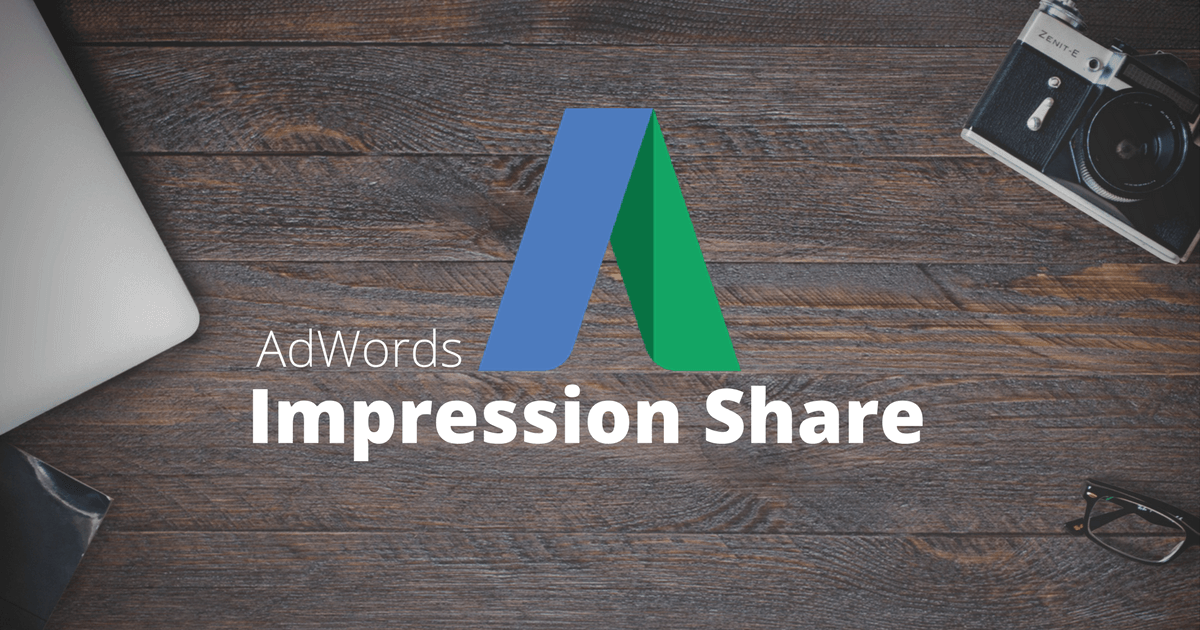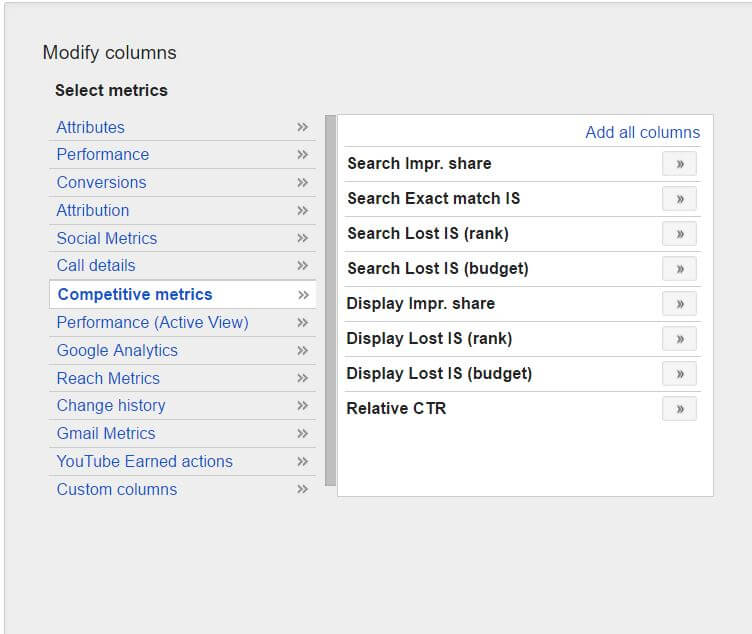AdWords Impression Share 101

There are plenty of metrics that show the health of your AdWords campaigns–but don’t let Impression Share metrics slip under the radar.
Impression Share can be tricky to interpret, particularly for Shopping campaigns (more on that later), but there is a lot you can learn by seeing how you compare to the competition.
Today we’ll go over what Impression Share is, how to find your data, and how to use it to gain a competitive edge.
Simply put, Impression Share (IS) is the total number of impressions that your ad has received divided by the number of impressions that your ad could possibly have gotten. Put another way, it looks like this:
Impression share = impressions / total eligible impressions
There are many factors that go into the estimated number of eligible impressions:
Impression share can be a great way to judge whether or not your ads may reach a wider audience if you increased your bid amount or budget. Making this judgment could be potentially helpful to your campaigns’ or group’s overall success.
Impression share is also a key indicator of why one of the keywords being used may not be performing as well as others. Based on the breakdown of your data, you can figure out which keywords are underperforming and make adjustments.
Impression Share shows you how the performance of your ads compares to the performance of competitor ads.
To find Impression Share data simply follow these steps:

Pro Tips:
NOTE: If you’re looking for your Impression Share for Google Shopping, you should know that Click Share is a more reliable metric of your ad’s visibility.
“Impressions have become less reliable for Shopping.”
“Impressions have become less reliable for Shopping due to the carousel change,” says Lewis Brannon, Paid Search Manager at CPC Strategy.
“The carousel now goes to 30+ products, and impressions are counted even if a user doesn’t scroll–so you might think your Impression Share is solid, but your products could be buried at the end of the carousel. That’s why we set up bid rules for our clients based on Click Share.”
Once you have your data you will see other metrics that can help you better understand what your Impression Share data means. Here are some of the key metrics you will find:
There’s a lot to choose from, and every business will find a different metric valuable. However, there are some that stand out. Our experts are partial to “Search Lost IS (rank).”
“Lost impression share due to rank is my go-to metric because it’s a quick representation of the additional visibility you could be getting if you improve your quality score,” says Brannon.
There are a few actions you can take to improve your impression share.
First, if you have terms that are limited by rank, you may need to increase their Quality Score. It’s recommended that you check your Quality Score fluctuations either on a daily or weekly basis. If you have well-performing keywords that seem to have a low Impression you can try raising their Quality Score by updating the ad copy and landing page.

Next, make sure that the budget caps you set aren’t too low for the campaign to perform well. If you receive consistent notifications that your campaign is limited due to the budget, look at the “Impression Share Lost to Budget” in your data to see how large the gap is between that and your set budget. This can help you determine what you will budget for this campaign in the future.
If other methods fail for improving Impression share, then bid adjustments may be needed. To make the most of your budget you may want to try focusing on bid increases only Exact Match keywords and keep track of the performance improvements.
Keep in mind the metrics for Impression Share are reported separately by campaign type and are not combined for the whole account.
Metrics are updated once per day for Impression Share.
For Search Network and Display Network campaigns, Impression Share metrics are updated at approximately 1 pm Pacific Time [GMT-8], and Shopping campaigns update at approximately 2 pm Pacific Time [GMT-8]. This means that because of these specific update times you won’t see data that reflects the current day’s Impression Share until the day after.
To gain a competitive edge with Impression Share, you’ll have to get more granular with your AdWords strategy.
As you monitor your keyword performance, you’ll uncover underperforming keywords, and you can reallocate that budget to successful keywords that drive results. (And when we say drive results, we mean the highest converters–not necessarily the highest trafficked keywords.)
When you divert more of your funds to high performing keywords, you will not only improve your Impression Share but your conversion rate as well.
A higher Impression Share also means that you can potentially get better ad positioning than your competition, and you’ll get better visibility.
Keep a close eye on performance fluctuations, you can also make the most of your budget and maximize growth potential at the same time.
